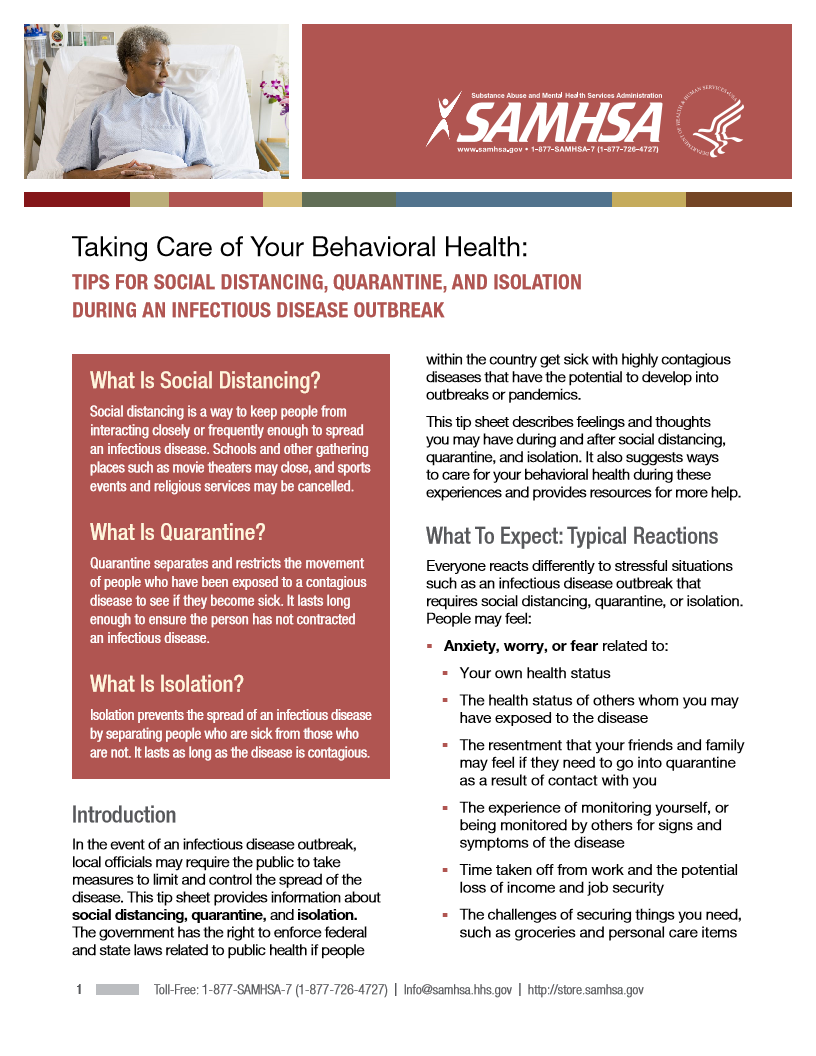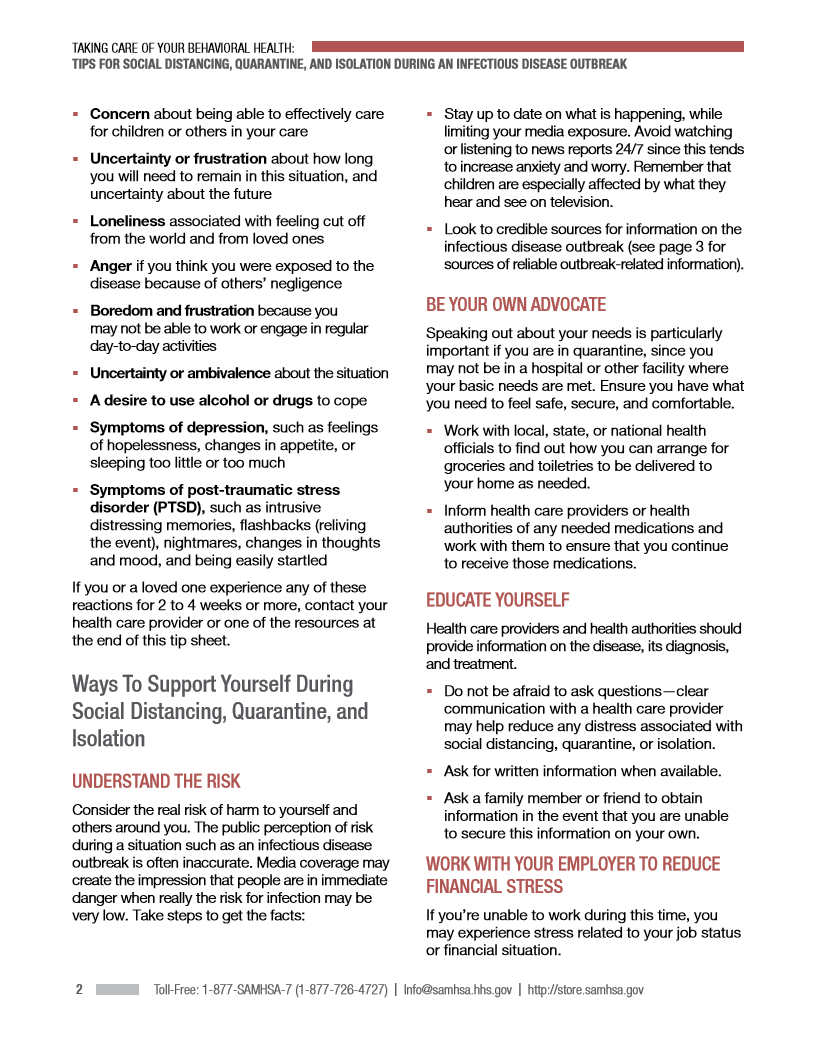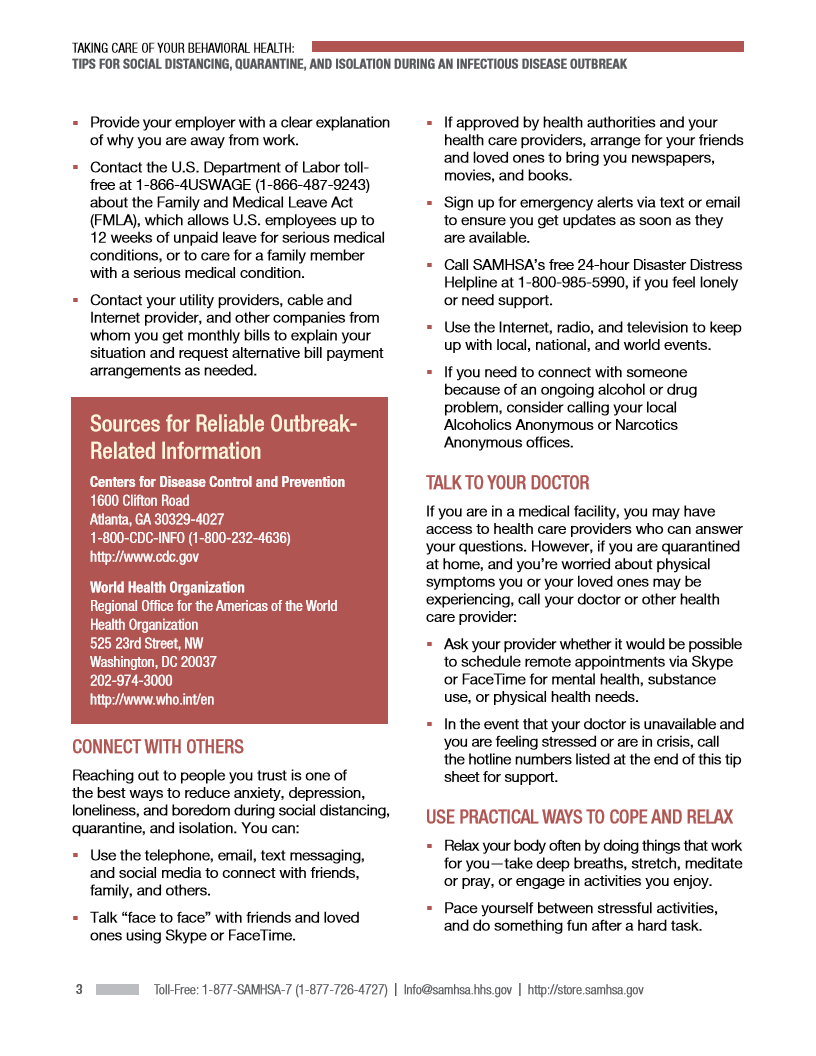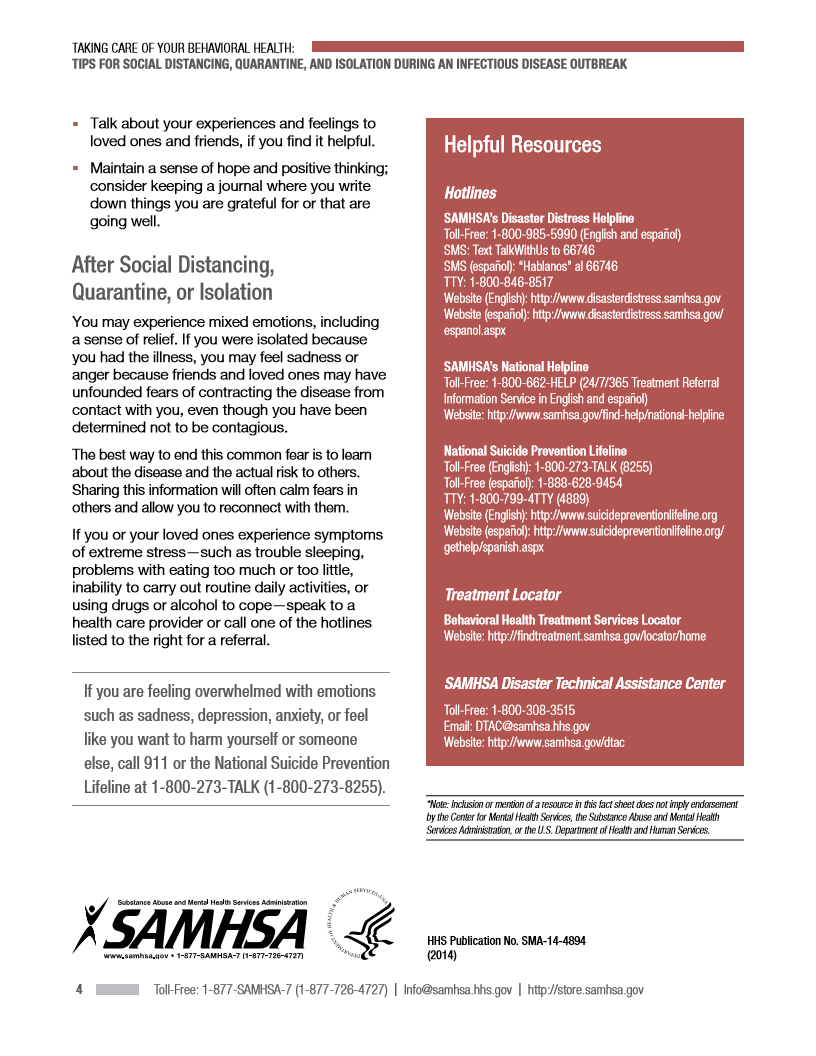




Small Business Relief Fund - Information for Businesses
We are not yet distributing funds through the Small Business Relief Fund, but rather are looking for philanthropic support from individuals, businesses, foundations and government entities who have the resources and desire to assist.
Grants for up to $5,000 will be made on a weekly basis. A review committee will make selections based on the following priorities:
- Businesses that are not eligible for other sources of local, state, or federal relief such as the SBA Disaster Assistance loans.
- Businesses that serve as a core community staple such as child care, rural/community grocery stores, restaurants, etc.
- Entrepreneur Fund's determination that the available loans and/or grants will make a discernible impact on the sustainability of the business.
- Businesses where timing is of the essence.
More information on the application process will be sent out by Monday, March 23, 2020. Sign up here for updates.
March 13, 2020 (Washington, D.C.) As school districts across the United States face potential school closings related to the COVID-19 virus, the State Educational Technology Directors Association (SETDA) is launching the SETDA Coalition for eLearning. The coalition, underwritten by AT&T, will compile and provide resources on eLearning for state education agencies and school districts at no cost.
“In preparation for the likely disruption in learning from the COVID19 virus, it is essential that we collaborate to provide best practices and a framework to ensure students can continue learning away from brick and mortar schools,” said Candice Dodson, executive director of SETDA. “With AT&T’s support, we hope to spark innovation around eLearning related to the COVID19 virus, inevitable inclement weather, and other disruptive events.”
“Providing students and educators with a mechanism to continue learning during uncertain times is critical to our nation’s wellbeing,” said Dr. Jennifer McCormick, Indiana’s State Superintendent of Public Instruction. “Expanding access with the support of partnerships allows for this experience. I commend the schools, businesses, and organizations working hard to continue educating our children.”
Resources for school districts include:
- Communication tools for state, district, and school stakeholders
- Examples of state and district policies and practices for eLearning days
- Access to partner solutions including options for home access
- An aggregation of digital content and lesson
- District pilot examples
- Resources for teaching online
- Considerations for special education students
Over the next two years, SETDA will collaborate with partners to continue building the online tool. Learn more about the publicly available resources at SETDA.org.
Join the launch Webinar, Strategies for eLearning Days in the Wake of COVID-19 Tuesday, March 17, 2020, at 5:00 pm – 6:00 pm EDT by edWeb to learn more.
SETDA is also hosting a free, edWeb online community of practice, Essential Elements for eLearning to provide policymakers, school administrators and educators a central location to share and learn from one another about policies and practices related to online learning, digital content, and eLearning days.
#####
About the State Educational Technology Directors Association
The State Educational Technology Directors Association (SETDA), founded in 2001, is the national non-profit association representing the interests of U.S. state and territorial educational technology leadership. SETDA’s mission is to build and increase the capacity of state and national leaders to improve education through technology policy and practice. For more information, please visit www.SETDA.org.
New Beginnings Pregnancy Center has a stock of diapers and wipes for those that are in need. Direct callers to call them at 218-326-0404 for a phone intake and directions on how to pick up the supplies requested.
Minnesota Recovery Connection’s top priority is the health, safety, and well-being of the recovery community, and we have been closely monitoring updates and information from the
Minnesota Department of Health (MDH) and the Centers for Disease Control and Prevention (CDC). As a precautionary measure to mitigate the risk of exposure to COVID-19, MRC is suspending all volunteer shifts beginning March 18 until further notice.
Our volunteers are extremely dedicated to strengthening the recovery community and we could not sustain our operations without them. We know, however, that sacrificing the valuable support of our volunteers in the short term may be one of the best things we can do for the long-term health of our community. We expect to resume volunteer operations in April, and we will provide regular updates as the facts and situation around COVID-19 continue to evolve.
Additionally, MRC is making the following adjustments until further notice, effective March 18:
MRC offices are closed for onsite services until further notice. We are converting all recovery support services to phone delivery.
Providing 1:1 peer recovery support services over the phone. If you would like to make a phone appointment for 1:1 recovery support, please call 612-584-4158 or email This email address is being protected from spambots. You need JavaScript enabled to view it. ';document.getElementById('cloak97ba8ea0b76bb3c821e0516de86c40d3').innerHTML += ''+addy_text97ba8ea0b76bb3c821e0516de86c40d3+'<\/a>'; and request to make an appointment with a Recovery Navigator.
Continuing to make Telephone Recovery Support calls. Our Recovery Navigators and Peer Recovery Specialist staff will be making calls in the absence of our TRS volunteers.
Providing recovery navigation services via the phone or email. If you need help navigating resources to support your recovery, from housing and employment to treatment assessments and more, you can connect with one of our Recovery Navigators or Peer Recovery Specialists by calling 612-584-4158 or emailingThis email address is being protected from spambots. You need JavaScript enabled to view it..';document.getElementById('cloakff46872917a1e12bbfe20107226fde4f').innerHTML += ''+addy_textff46872917a1e12bbfe20107226fde4f+'<\/a>';
Converting all group meetings to phone meetings. This includes All Recovery Meetings. Please see our schedule of group recovery meetings and remote participation options.
Reducing our office hours to 9 a.m. - 5 p.m., Monday - Friday. This is a slight reduction in office hours to accommodate our staff who need to work from home for
health or child care reasons. MRC will maintain a reduced onsite staffing level to accommodate Telephone Recovery Support calls.
Implementing extra safety and sanitation efforts inside our offices and homes. We encourage everyone to follow the precautions and steps recommended by the MN Department of Health and CDC.
If you need to complete volunteer hours to maintain a service requirement, please contact Midori Sakamoto atThis email address is being protected from spambots. You need JavaScript enabled to view it.';document.getElementById('cloake228abd6c290aa5bcf396ff02f377fb1').innerHTML += ''+addy_texte228abd6c290aa5bcf396ff02f377fb1+'<\/a>'; . It may be possible for you to complete online training opportunities to fulfill some volunteer service requirements.
We will provide regular updates as we expand our capacity to deliver remote recovery support services and as the COVID-19 situation evolves.
Thank you for your support and understanding as we work to continue providing essential recovery support services to our community while taking precautions against the spread of COVID-19. If you have questions about your volunteer service or a previously scheduled volunteer shift, please contact Midori Sakamoto, Community Engagement Coordinator, at 612-584-4158, ext. 114 or This email address is being protected from spambots. You need JavaScript enabled to view it..
Most importantly, please be careful and cautious - the recovery community is strong, and we want to keep it that way! Please don’t hesitate to reach out for recovery support during this difficult time.
Mental Health Support And COVID-19
NAMI Minnesota is very concerned about the mental health of the people we serve and the
greater community. This is a very trying time. If you have questions about COVID-19, call the
Department of Health at 651-201-3920 or 1-800-657-3903 from 7 am – 7 pm Monday through
Friday.
If you are:
- Unsure about attending therapy sessions outside the home, especially people who are at higher risk, ask your health care provider about telemedicine or online mental health services.
- Worried about access to prescribed medications, you can ask your health care provider about getting 90-day supplies vs. a 60 or 30-day supply. If this is not possible, we encourage you to refill your medications as soon as they are allowed.
- Worried about your mental health:
- Call the warm line at 651-288-0400 or text “Support” to 85511;
- Call the crisis team at **CRISIS or click here for the county numbers https://mn.gov/dhs/people-we-serve/adults/health-care/mental-health/resources/crisis-contacts.jsp
- Call the National Suicide Prevention Lifeline at 1-800-273-TALK (8255)
- Crisis Text Line is available for free, 24/7 by texting MN to 741741
- Call the SAMHSA Disaster Distress Helpline at 1-800-985-5990
Please check our website for any updates about support groups, classes, and the office and for more information on COVID-19 check the Minnesota Department of Health’s website. https://www.health.state.mn.us/diseases/coronavirus/index.html
The internet is essential for successful learning and Mediacom wants to help families with K-12 students get connected. Mediacom Connect2Compete is offered as one of the ways our company works to close the "digital divide."
We participate with "EveryoneOn," a national non-profit program. Our goal is to make home internet access simple and affordable so that students have a reliable connection to participate in a digital curriculum and extend the learning experience from school to home. Mediacom makes this service available to eligible families in all areas where Mediacom's broadband network is present.
See how you can get connected. Your household may qualify if:
- Mediacom offers internet service in your community or area
- You have at least one student in grades K-12 living at home
- At least one child qualifies for free or reduced-price school lunch through the National School Lunch Program (NSLP)
- You are not a current Mediacom internet customer and have NOT subscribed to our internet service in the past 90 days
- You do not have an outstanding Mediacom bill or unreturned equipment**
Introduction
It is not uncommon to have stressful periods when it can feel like our worries are interfering with
daily life. Whether we are dealing with an external stressor (like starting college or adjusting to a
new job), ongoing stress (like finances or family issues), or just feel like stress is getting the best
of us – there are some lifestyle choices that can help minimize worries and promote overall well-
being. A key to feeling better is to use wellness strategies aimed at helping you cope with the
stressors in your life.
Practice relaxation techniques
Relaxation techniques (including meditation, yoga, breathing exercises) can help reduce tension
and stress and increase feelings of well-being. It is important to be aware that some people find
relaxation techniques difficult and they can even cause frustration and increased anxiety for some
people. Do what works for you.
Reduce alcohol intake
Some people believe that having a drink helps them cope with stress when they are feeling
distressed. Actually, alcohol can increase your anxiety and negatively distort your outlook on
your worries, making things worse, not better.
Exercise regularly
Exercise is a natural stress reliever – even moderate exercise can have a positive effect on mood.
A short walk for 15 or 20 minutes every day can make a difference. Physical wellness and mental
health tends to go hand in hand.
Get enough sleep
Poor sleep can intensify stress and make it more difficult to cope with stressors. There are a
number of strategies that can help you develop healthy sleep habits and address insomnia.
Develop healthy eating habits
What and when we eat can have a significant impact on how we feel. Taking the time to make
healthy, nutritious food can help with anxiety and mood. See more about nutrition here.
Engage in pleasurable activities
Take some time to do the things you enjoy. This can help improve your mood and outlook and
help you better manage the stress you are facing.
Consider professional help
If you’ve tried these suggestions for a while and are still feeling stressed or overwhelmed you
may be experiencing an anxiety disorder or depression. It may be time to consider seeing a
professional who might be able to help you feel better.
Meaningful learning opportunities for all students K-12.
Resources that are available through our district include:
The following library resources are available:
Technology resources:
- MAA Discounted Chromebooks - Chromebooks can be shipped to a family's house for under $50.
The following companies have offered services in response to COVID-19:
Health officials with the Centers for Disease Control and Prevention (CDC) and World Health Organization (WHO) are monitoring an outbreak of respiratory illness, called coronavirus disease 2019 (COVID-19), caused by a novel (new) coronavirus that was first detected in Wuhan City, Hubei Province, China. COVID-19 is a viral respiratory illness caused by a coronavirus that has not been found in people before. COVID-19 is not caused by the same coronavirus that caused Severe Acute Respiratory Syndrome (SARS) in 2003 or the Middle East Respiratory Syndrome Coronavirus (MERS-CoV) in 2012. However, it is in the same family of viruses.
As of March 12, 2020, there have been 9 confirmed cases of COVID-19 in Minnesota in the following counties: Anoka, Carver, Dakota, Hennepin, Olmsted, Ramsey, and Stearns. There have been no cases in Itasca County. So far, the cases in Minnesota have been travel-related and there has not been evidence of the virus circulating in the community. Itasca County Public Health is following the situation closely and is receiving guidance from the Minnesota Department of Health (MDH) and CDC. MDH is monitoring and testing individuals who have risk factors or symptoms concerning for COVID-19. If a case is identified, MDH will implement appropriate isolation, contact identification, and quarantine measures to prevent further spread into the community.
The following are steps we can all take to protect ourselves and those around us from COVID-19:
- Wash your hands thoroughly with soap and water. If soap and water are not available, alcohol-based hand sanitizer with at least 60% alcohol is recommended
- Cover your cough
- Avoid touching your eyes, nose, mouth, or face
- Stay home when you're sick
- Avoid travel to areas where community spread is occurring
- Wearing a facemask is NOT recommended unless you have symptoms concerning for COVID-19 (fever, cough, shortness of breath) or are a healthcare worker caring for ill patients
- If you have symptoms of COVID-19 (fever, cough, shortness of breath) and think you may have been exposed to a positive case of COVID-19 or recently returned from an area where COVID-19 is occurring, it is recommended you call your clinic or the ER before you arrive to be evaluated
We are also in the midst of the influenza season. The above recommendations in addition to getting the flu vaccine (it's not too late!) will help protect you and those around you from the flu, which can be serious and even fatal.
Information on COVID-19 continues to evolve daily—therefore, Public Health recommends the following sources for the most up-to-date information:
Minnesota Department of Health https://www.health.state.mn.us/diseases/coronavirus/index.html
- Travel Information https://www.health.state.mn.us/diseases/coronavirus/travel.html
Centers for Disease Control https://www.cdc.gov/coronavirus/2019-nCoV/index.html
World Health Organization https://www.who.int/emergencies/diseases/novel-coronavirus-2019
The CDC and MDH have developed guides for various sectors (healthcare, long term care, schools, businesses, first responders, homeless shelters, jails, etc) to help prevent the spread of COVID-19 in communities:
CDC Preventing COVID-19 Spread in Communities
MDH Prepare and Prevent COVID-19
